
Researchers have found that dietary changes in yeast can lead to healthy aging without calorie restriction. By switching the yeast’s diet from glucose to galactose at an early age, the team was able to delay cellular aging and improve overall health, suggesting that dietary adjustments, rather than caloric restriction, could promote longevity and wellness in later life.
Is it possible to achieve healthy aging through eating? Yeast research points the way to securing better health in our golden years.
Scientists from the Babraham Institute suggest an alternative connection between diet and aging, based on studies in yeast. Dr. Jon Houseley and his team have published their experiments, demonstrating that healthy aging is achievable through dietary change without restriction by potentially optimizing diet and that ill health is not an inevitable part of the aging process.
Scientists have long known that caloric restriction – intentionally consuming far fewer calories than normal without becoming malnourished – improves health in later life and may even extend life. However, studies in mice show that caloric restriction really needs to be maintained throughout life to achieve this impact, and the health benefits disappear when a normal diet is resumed. Dr. Houseley’s new research conducted in yeast suggests an alternative to calorie restriction can lead to improved health throughout the lifecycle.
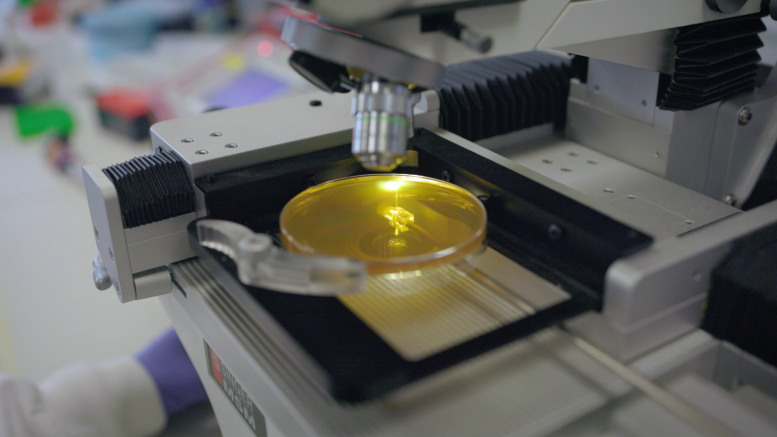
An agar plate with yeast growing on is put under a microscope to allow scientists to see individual yeast cells. Credit: Babraham Institute
“We show that diet in early life can switch yeast onto a healthier trajectory. By giving yeast a different diet without restricting calories we were able to suppress senescence, when cells no longer divide, and loss of fitness in aged cells.” Said Dr Dorottya Horkai, lead researcher on the study.
Rather than growing yeast on their usual glucose-rich diet, the researchers swapped their diet to galactose and observed that many molecular changes that normally accompany aging did not occur. The cells grown on galactose remained just as fit as young cells even late in life, despite not living any longer, showing that the period of ill health towards the end of life was dramatically reduced.
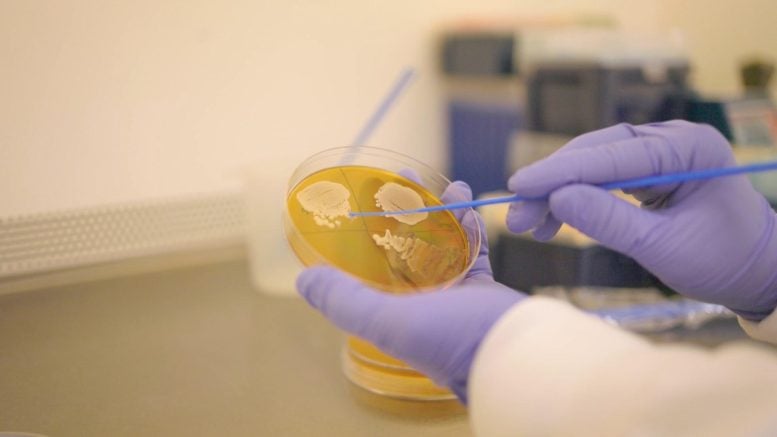
A researcher selects a colony of yeast from an agar plate. Credit: Babraham Institute
“Crucially, the dietary change only works when cells are young, and actually diet makes little difference in old yeast. It is hard to translate what youth means between yeast and humans, but all these studies point to the same trend – to live a long and healthy life, a healthy diet from an early age makes a difference,” explains Dr. Houseley.
Yeast are good model organisms for studying aging as they share many of the same cellular machinery as animals and humans. This avenue of research in yeast helps us to seek a more achievable way to improve healthy aging through diet compared to sustained and severe calorie restriction, although more research is needed.
Reference: “Dietary change without caloric restriction maintains a youthful profile in ageing yeast” by Dorottya Horkai, Hanane Hadj-Moussa, Alex J. Whale and Jonathan Houseley, 29 August 2023, PLOS Biology.
DOI: 10.1371/journal.pbio.3002245
This research was funded by the Wellcome Trust and the Biotechnology and Biological Sciences Research Council (BBSRC), part of UKRI.


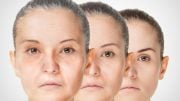
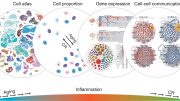

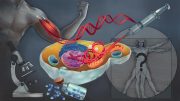
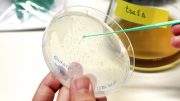

No doubt but that I’ll be over 200-years-old before they can translate that yeast cell’s diet to humans
Have any of these researchers read The Blue Zones? Lab experiments on yeast no less are a long way away from actual in vivo data that already exist in the longest lived civilizations on earth.
How interesting! If only young people would start and continue with a healthy diet….
Thank you a very informative article
Now define healthy food. A study shows xyz is healthy. Later another one shows xyz is bad for you or at
Least not healthy. How many times have I seen eggs be declared good and then bad for you? Flipping back and forth. Many others the same if you follow the literature.
The same vacillation for sugar, butter, and fat.
All Chaina items Band but
Chaina Followed India Rulse And Russia 🇷🇺 🕉🛕🚩✝️⚛️✡️🔅♥️
EMERGENCY Chaina items Band
Carbohydrates are toxic and when combined with PUFA’s directly cause cancer, diabetes, heart disease, liver disease, obesity and dementia.
Important information. We eat 3mealsa
day . Not a big breakfast, but a decent lunch. Not hamburgers and hotdogs! And dinner, balanced.
Blue Zone Ikaria , Greece : I had a patient in Denver , Colorado who lived to 104 . Problem is that she moved to Astoria,New York when she was 2 years old and had never gone back to Ikaria. True she grew up in a Greek community in New York City with its food culture, but if you want healthy longevity pick your parents right. It’s all in the Genes.Maybe travel to Ikaria and see if you have a relative there !
Yes the book “the blue zone”made lots of sense! It showed that people that live longest are from different islands across the world. Most of these people worked a long day on farms. They are what they grew! And went to bed early & got up early ! So sounds like discipline to me is good for us!